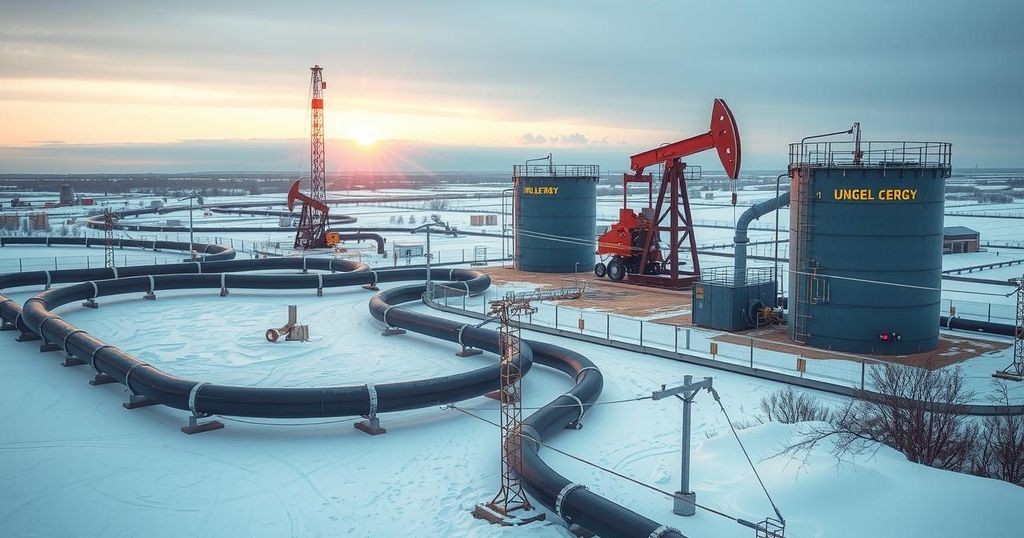Iran continues to export gas to Iraq despite severe domestic shortages during a harsh winter. The National Iranian Gas Company assures that exports will persist, citing a renewed long-term contract, while many Iranians face challenges to heat their homes. Reports of public frustration and energy rationing indicate a significant disconnect between government policies and citizens’ needs.
As Iran experiences one of its coldest winters in recent years, citizens are grappling with acute gas shortages. However, Iranian authorities have confirmed that gas exports to Iraq will continue despite the hardships at home. The National Iranian Gas Company’s CEO, Saeed Tavakoli, emphasized the renewal of a long-term gas export contract with Iraq, downplaying the effects of U.S. sanctions on these transactions.
Despite Tavakoli’s assurance that 72% of gas production is allocated for domestic use, many Iranian households are suffering from heating deficiencies and power outages. The paradox lies in Iran, rich in natural gas reserves, still needing to import gas while domestic consumers endure ongoing blackouts and supply disruptions.
The Iranian government’s ongoing energy agreements with Iraq, coupled with Iraq’s inability to repay its significant debt, further exacerbate the situation. Although Baghdad insists that payments are obstructed by international sanctions, the Iranian regime appears unwilling to alter its export strategy in light of domestic energy deficiencies.
On February 5, 2025, the U.S. revoked Iraq’s exemption from sanctions, which may hinder Baghdad’s gas imports from Iran. Experts warn of an impending electricity crisis in Iraq due to the loss of Iranian gas supplies, raising concerns about potential unrest.
Despite the mounting crisis at home, Iranian authorities remain focused on maintaining energy exports abroad. Reports of rationing and energy shortages continue to surface, evoking public frustration as the regime prioritizes foreign contracts over the urgent needs of its citizens. The ongoing energy crisis has already resulted in the closure of government offices and schools across 28 provinces, leaving many struggling to keep warm.
Ultimately, the Iranian government’s continued export of gas to Iraq amid severe domestic shortages reflects its policy of prioritizing regional influence over addressing critical domestic challenges. The humanitarian impact of the energy crisis demands immediate attention, yet the regime’s focus remains on maintaining its energy dealings with neighboring countries.
The article discusses the ongoing gas export operations from Iran to Iraq despite severe domestic shortages faced by Iranian citizens. The Iranian government continues to prioritize international energy agreements while its population encounters energy crises resulting from freezing temperatures and inadequate heating. The complexities of U.S. sanctions and Iraq’s unfulfilled debt to Iran further complicate the situation, illustrating the conflicting demands on Iranian resources and the government’s strategic decisions.
In conclusion, the Iranian regime’s decision to prioritize gas exports to Iraq amid a domestic energy crisis highlights a significant disconnect between governmental policies and the urgent needs of its citizens. The situation calls for immediate attention to improve local energy stability and address growing public discontent resulting from inadequate heating and power shortages. The persistence of these policies underscores a broader challenge to the Iranian government’s legitimacy within its own borders.
Original Source: www.ncr-iran.org






